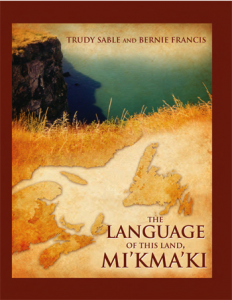Interesting new project from Google: a website for information in and about endangered languages. Description from their main page, at www.endangeredlanguages.com:
The Endangered Languages Project, is an online resource to record, access, and share samples of and research on endangered languages, as well as to share advice and best practices for those working to document or strengthen languages under threat. (Source)
More details on the project at the Google blog press release and an FAQ on sources for the information. People here at CoLang with me seem pretty interested by this, and a few of the people here are already involved.
I just checked out the entry for Mi’gmaq, and it’s pretty incomplete. For example, only one location is listed where the language is spoken, around Shubenacadie, Nova Scotia, the primary spelling is listed as Micmac, and the primary classification is listed as Algic. There are three Youtube videos linked, but no other materials in the language.
However, people and organizations are encouraged to sign up and add more to the entries. On the one hand, getting involved could correct some of this information and make more resources available. On the other hand, it would be extra work for us, and we’re already making materials available online. At minimum, maybe we could consider logging in and making some links to Mi’gmaq-language resources that are already online? Anyone have any thoughts on this?


